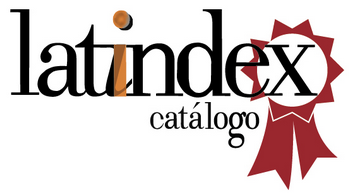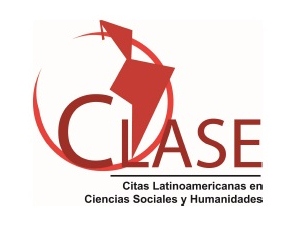Un alegato a favor del enfoque lógico en la teoría de la argumentación
Resumen
El estudio actual de la argumentación se encuentra distanciado de la lógica. En este artículo sostengo que restaurar el vínculo del estudio de la argumentación con esta disciplina podría resultar benéfico para la metas descriptivas y normativas de este campo de investigación. Tras destacar algunos aspectos del surgimiento la teoría de la argumentación contemporánea, enfatizando la idea de ‘perspectivas’, explico cómo el reconocimiento de sus objetivos y tareas volvió problemática la coexistencia de varios enfoques o aproximaciones para el estudio de la realidad argumentativa. Sugiero algunas hipótesis explicativas sobre el abandono del enfoque lógico en favor de otras alternativas y, a continuación, ofrezco razones para encauzar el estudio sistemático de la argumentación desde este enfoque. Además de las consideraciones normativas y las herramientas descriptivas que pueden aducirse en su favor, sostengo que el enfoque lógico puede proporcionar una clase de integración a este de campo investigación de maneras que no están disponibles para otras aproximaciones.Citas
Bermejo-Luque, L. (2009). “La distinción aristotélica entre Lógica, Dialéctica y Retórica y su lugar en la Teoría de la Argumentación”. Cogency, 1 (2): 27-48.
- (2011). Giving Reasons. A Linguistic-Pragmatic Approach to Argumentation Theory. Dordrecht: Springer.
- (2014). Falacias y argumentación. Madrid: Plaza y Valdés.
Blair, J. A. (2012). “Rhetoric, dialectic, and logic as related to argument”. Philosophy & Rhetoric, 45 (2): 148-164.
Brockriede, W. (1975). “Where is argument?” The Journal of the American Forensic Association, 11 (4): 179-182.
Corner, A. y Hahn, U. (2009). “Evaluating science arguments: Evidence, uncertainty, and argument strength”. Journal of Experimental Psychology: Applied, 15 (3):199-212.
Corner, A. y Hahn, U. (2013). “Normative theories of argumentation: Are some norms better than others? Synthese, 190 (16): 3579-3610.
Dorling, J. (1992). “Bayesian conditionalization resolves positivist/realist disputes”. Journal of Philosophy, 89 (7):362-382.
Eemeren, F. H. van (2019). La teoría de la argumentación: Una perspectiva pragmadialéctica. (Traducción de K. Wolf y C. Santibáñez). Lima: Palestra Editores.
Eemeren, F. H. van, B. Garssen, E. C. W. Krabbe, A. F. Snoeck-Henkemans, B. Verheij y J. H. M. Wagemans. (2014). Handbook of Argumentation Theory. Dordrecht: Springer.
Eemeren, F. H. van. (2015). “Bingo! Promising developments in argumentation theory”. En F. H. van Eemeren y B. Garssen (eds.). Reflections on Theoretical Issues in Argumentation Theory. Cham: Springer. pp. 3-24.
Eva, B. y Hartmann, S. (2018a). “Bayesian argumentation and the value of logical validity”. Psychological Review, 125(5): 806–821.
Eva, B. y Hartmann, S. (2018b). “When no reason for is a reason against”. Analysis, 78 (3), 426–431,
Fitelson, B. (2005). “Inductive logic”. En S. Sarkar y J. Pfeifer (eds.). (2005). The Philosophy of Science. An Encyclopedia. 2 vols. (pp. 384-394). New York: Routledge.
Gensollen, M. (2017). “El lugar de la Teoría de la virtud argumentativa en la teoría de la argumentación contemporánea”. Revista Iberoamericana de Argumentación, 15: 41-59.
Gensollen, M. y Jiménez-Rolland, M. (2018). “La ciencia como un punto de vista: algunos desafíos a la objetividad científica”. Daimon. Revista Internacional de Filosofía, 75: 43-57.
Godden, D. y Zenker, F. (2018). “A probabilistic analysis of argument cogency”. Synthese, 195: 1715-1740.
Govier, T. (2018). Problems in Argument Analysis and Evaluation. (Updated edition). Ontario: Windsor Studies in Argumentation.
Hahn, U. y Hornikx, J. (2016). “A normative framework for argument quality: Argumentation schemes with a Bayesian foundation”. Synthese, 193 (6): 1833-1873.
Hahn, U. y Oaksford, M. (2006). “A Bayesian approach to informal argument fallacies”. Synthese, 152 (2): 207-236.
Hahn, U. y Oaksford, M. (2007). “The rationality of informal argumentation: A Bayesian approach to reasoning fallacies”. Psychological Review, 114 (3): 704-732.
Harris, A. J. L., Hsu, A. S. y Madsen, J. K. (2012). “Because Hitler did it! Quantitative tests of Bayesian argumentation using ad hominem”. Thinking & Reasoning, 18 (3): 311-343.
Johnson, R. (2000). Manifest Rationality: A Pragmatic Theory of Argument. New Jersey: Lawrence Earlbaum Associates.
Partee, B. H., Meulen, A. ter y Wall, R. E. (1993). Mathematical Methods in Linguistics. Dordrecht: Kluwer Academic Press.
Sider, T. (2010). Logic for Philosophy. New York: Oxford University Press.
Skyrms, B. (2000). Choice and Chance. An Introduction to Inductive Logic. (4th ed.). Stamford: Wadsworth.
Titelbaum, M. (2019). “Precise credences”. En R. Pettigrew y J. Weisberg (eds.). The Open Handbook of Formal Epistemology. (pp. 1-55). Ontario: The PhilPapers Foundation.
Welch, J. R. (2020). “Credence for conclusions: A brief for Jeffrey’s rule”. Synthese, 197: 2051–2072.
Wenzel, J. W. (1990). “Three perspectives on argument. Rhetoric, dialectic, logic”. En W. Brockriede, R. Trapp y J. E. Schuetz (eds.). Perspectives on Argumentation: Essays in Honor of Wayne Brockriede. (pp. 9-26). New York: International Debate Education Association.
Una vez que un texto es aceptado para su publicación en Quadripartita Ratio, sus autores deben firmar dos documentos de carácter legal: una Licencia de uso y una Declaración de autoría.
Con la Licencia de uso, los autores autorizan la publicación de su obra y la difusión de ésta (integración en bases de datos, difusión en nuestras redes sociales, reediciones posibles, etc.). No obstante, se autoriza la descarga, reproducción y distribución de todos nuestros contenidos publicados, siempre que no se modifique el contenido y se indique su origen (nombre de la revista, volumen, número, páginas y dirección electrónica del documento).
Con la Declaración de autoría, los autores manifiestan que la obra es de su autoría, original e inédita.









